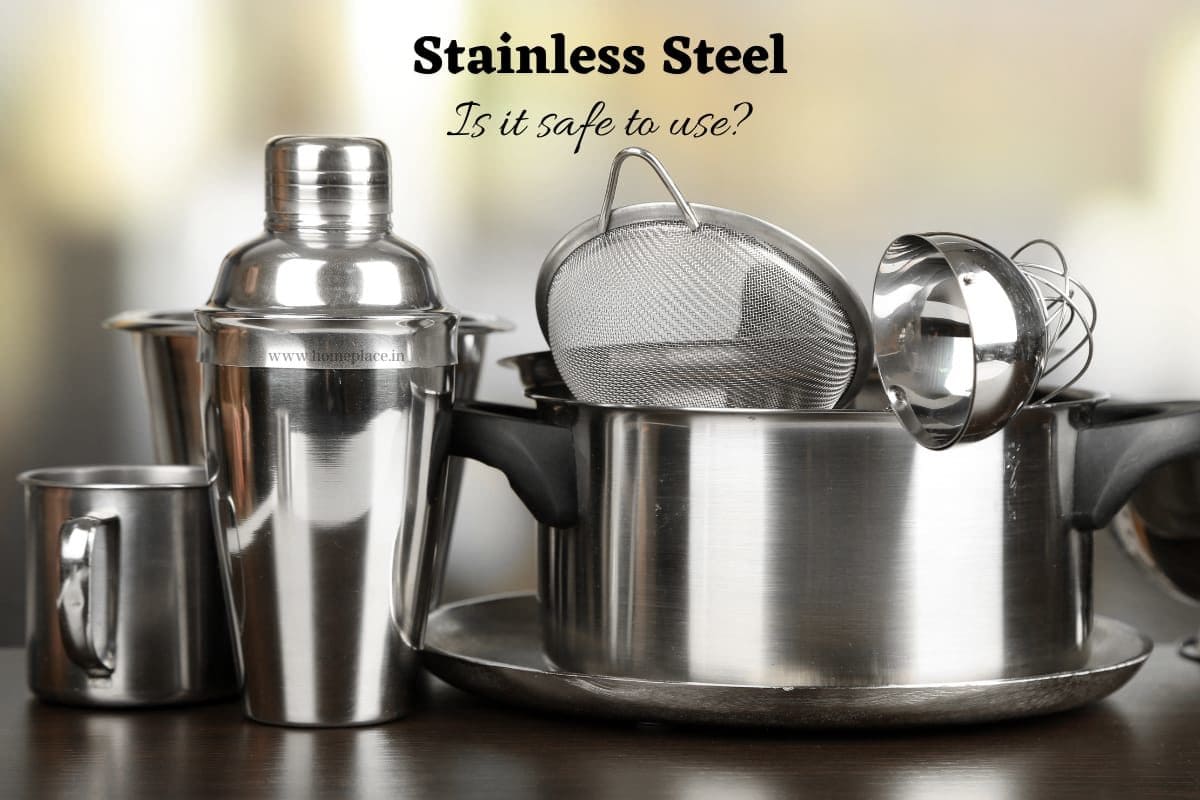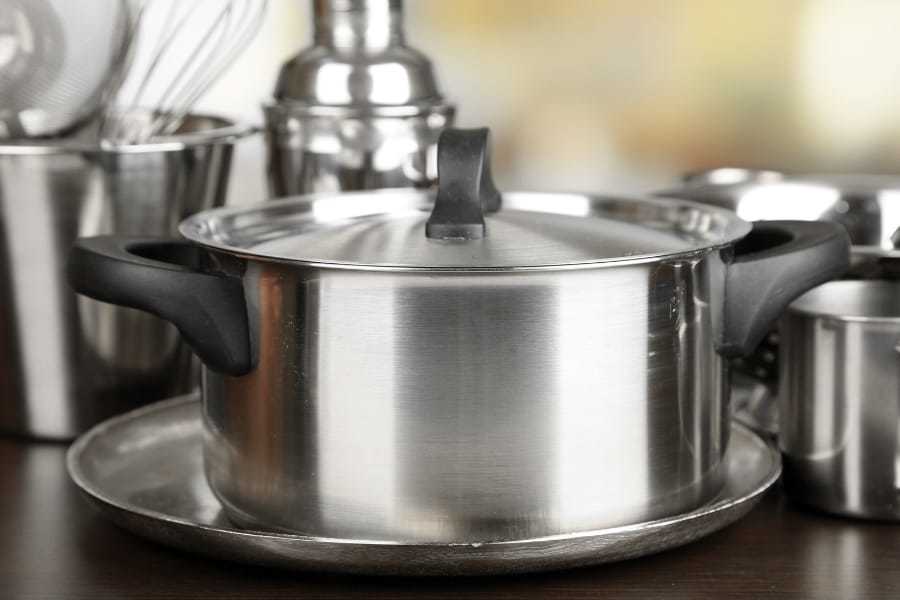Stainless Steel Cookware is one of the most popular choices of most Indian consumers, and it has high durability and sturdiness compared to other materials. Despite a few limitations, it is worthy of use regularly in cooking. However, being conscious of the food quality, we often doubt if stainless steel cookware is safe to use.

What is Stainless Steel Cookware?
Stainless steel is an iron-base alloy containing 11 to 30 wt.% chromium and at least 50 wt.% iron. It includes other alloying elements like nickel, molybdenum, copper, titanium, aluminum, silicon, niobium, and nitrogen.
The chromium content plays a vital role in the food safety of stainless steel cookware as it does not react to the food. Instead, it forms a safe layer of chromium oxide on the surface of the metal. It is responsible for the shiny finish and anti-corrosion property of stainless steel.
You can get stainless steel pressure cooker, pan, handi, and kadai compatible with induction cooktops, gas stoves and electric cookers. Some are even compatible with electric and gas stoves. Keeping the factors in mind, stainless steel cookware has revolutionized cooking.

Is Stainless Steel Cookware Safe to Use?
For the most part, it is safe to use stainless steel cookware. However, safety depends on your way of use and the manufacturing qualities of the product. There are 5 series of stainless steel grades used in manufacturing-
- 200 Series: Austenitic Chromium, Nickel, Manganese alloys
- 300 Series: Austenitic Chromium, Nickel alloys
- 400 Series: Ferritic and Martensitic Chromium alloys
- 500 Series: Heat Resisting Chromium alloys
- 600 Series: Martensitic Precipitation Hardening alloys
Among all these grades, SS 304 and 316 from the 300 series are vastly used by cookware brands as they are perfectly food-safe, corrosion-resistant, and do not react with foods easily. SS 316 is more preferable to SS 304 as it does not at all corrode with the application of salt or acidic food items. However, Austenitic stainless steel like 304 or 316 is not ferromagnetic, making them incompatible with induction cooktops.
In such a scenario, manufacturers design 304 stainless steel cookware with a base made of SS 430 that belongs to the 400 series. Most triply cookware contains an aluminum core sandwiched between 304 (inner) and 403 (outer) grade stainless steel.
However, as stainless steel consists of Chromium and Nickel, some users allergic to these elements may find this cookware unsafe to use. In that case, cast iron cookware can be an ideal alternative.
The 200 series stainless steel cookware can be suitable for people with allergies to Nickel as Manganese replaces the Nickel content. However, it is not corrosion-resistant, which makes it less desirable.
Though there is less probability, poorly manufactured or partially damaged stainless steel cookware can leach more Nickel and Chromium into the food. For this reason, always choose the best stainless steel cookware from a reputed brand like Vinod, which is trustworthy about quality and food-safety.
Advantages of Stainless Steel Cookware
Disadvantages of Stainless Steel Cookware
How to Ensure Safety for Using Stainless Steel Cookware?
- Choose High-Grade Stainless Steel
Stainless steel comes in multiple grades like 200, 202, 303, 304, 316, 310, 321, and 430 with different compositions. Among many stainless steel variants, the Grades 200s, 202, 304, 316, and 430 are the most accepted food-safe cookware materials. At the same time, SS 304 and SS 316 are ideal for cookware and containers among the grades.
- Buy From Reputed Brands
Always buy from the reputed companies in the Indian market. Prestige, Pigeon, Hawkins, and Sumeet are the most popular brands for stainless steel cookware.
The best cookware brands provide you with high-quality cookware with a feeling of satisfaction and trust. Buying cookware from these brands can help you get the right product and a sense of satisfaction and trust.
- Operational Care
Because of the nature of metals, stainless steel usually gets hot in a short time. So, be cautious about hot pans or pots. The user should be mindful and organized while cooking with stainless steel cookware. Never overheat it as the surface may catch up with dark burning patches. Slightly preheat the cookware and once it is heated, add a suitable quantity of oil. Once the oil is heated, add ingredients to cook.
- Ensure Proper Cleaning and Maintenance
Stainless steel cookware is safe to cook food. But, reasonable care should be taken by the user during cleaning of stainless steel cookware. Rinse the cookware as soon as cooking is complete to make the wash effective. Avoid using abrasive scrubbers as they may damage the stainless steel finish.
Related Post:
